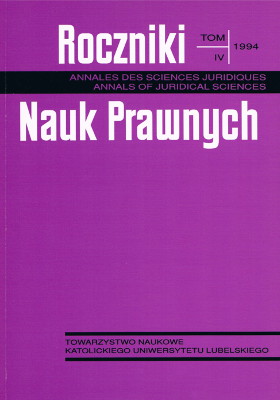The Legal Bases of the Commons' Finances
Abstract
The paper deals with the fundamental problem in the territorial self-government's work, namely, its finances.
The territorial self-government − an organ of public administration equivalent to state organs − has been established to satisfy the needs of the local community and to articulate its interests.
To be equal to this task the self-government must be supplied with adequate financial means, and above all, with the right to decide about them independently.
From the presented considerations it clearly follows that the commons are independent to such a degree to which the are financially independent.
The subject of the article is concerned with the following two questions:
1) presentation and appraisal of the present legal status as determined by the basic legal acts regulating the work of the territorial self-government − in the aspect of its finances (the so called Little Constitution and the law about the territorial self-government);
2) regulation of the commons' income in the years 1991-93.
The paper consists of four paragraphs, presenting − besides the introductory questions − the nature of self-government, discussing the law about the territorial self-government (and in its light − the problems which are fundamental for the existence of self-government, it is the tasks of self-government, communal property, and commercial activity), showing the relations between the solutions concerning finances accepted in the law about the territorial self-government and in the financial law; but first of all − the conception of financing the commons in the years 1991-1993.
Copyright (c) 1994 Roczniki Nauk Prawnych

This work is licensed under a Creative Commons Attribution-NonCommercial-NoDerivatives 4.0 International License.


